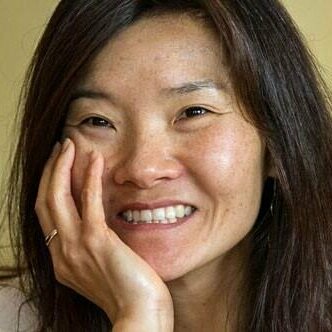
Angela Park is an independent consultant, researcher, and writer dedicated to making social justice and equity hallmarks of progressive institutions—across advocacy, policymaking, philanthropy, education, and business. She helps mission-driven organizations embed social justice and equity throughout their operations and programs, bringing three decades of experience on sustainable development policy, environmental justice, equity and diversity, and organizational and leadership development. Angela has worked with nonprofits, coalitions, foundations, philanthropic networks, governmental agencies at all levels, educational institutions, and companies across the consumer products, banking, technology, retail, communications, insurance, and utilities industries.
Angela has testified before Congress, state legislatures and lectured at universities across the United States. A sought-after speaker, she has keynoted conferences for the League of Conservation Voters, Bowdoin College, State Environmental Leaders Conference, Urban Sustainability Directors Network, The Funders’ Network for Smart Growth and Livable Communities, Coalition for a Livable Future, Sustainable Agriculture and Food Systems Funders, Western States Center, and the North American Association for Environmental Education, among others. She researched and wrote Equity in Sustainability (2014) and Everybody’s Movement: Environmental Justice and Climate Change (2009) and her work has been published by The Diversity Factor, Grist, and Yale University and featured in The Washington Post and Audubon. She was an adjunct professor at Antioch New England where she co-taught a graduate course in Environmental Advocacy and Organizing.
Previously, Angela worked at The White House in both terms of the Clinton-Gore administration, managing sustainable communities policy and constituency engagement at the President’s Council on Sustainable Development. She led research and recommendations to the President on wide-ranging issues from civic participation and environmental justice to sustainable economic development and smart growth. Angela was the longest-serving staff member and the only person appointed for both recommendations and implementation phases of the Council’s work. She coordinated state-level sustainable development initiatives at the Center for Policy Alternatives, focusing on legislation to promote renewable energy, public transportation, energy efficiency, and environmental justice. Angela co-founded and served as deputy director of the Environmental Leadership Program where she created it’s leadership development programming and launched and facilitated two collaborative peer learning networks on environmental leadership and diversity in the environmental field.
She participated in the inaugural class of the Donella Meadows Leadership Fellows Program and was named a Young Woman of Achievement by the Women’s Information Network in Washington, DC. She graduated from the NTL Institute’s Diversity Practitioner Certificate Program and studied psychology, environmental studies, and journalism at Boston University. Angela has served as a director on numerous nonprofit boards and as an advisor to foundations. She recently concluded a major energy retrofit and renewable energy installation with her family and is on an ongoing mission to expand perennial and vegetable gardens at their home in Vermont.
Angela participated in the inaugural class of the Donella Meadows Leadership Fellows Program. She has integrated the systems thinking skills she gained from the Fellowship into her work with mission driven organizations. This includes testing assumptions about the root causes of inequity on specific issues and within movements; mapping impacts and dynamics of systemic racism, classism, and sexism—in addition to other forms of oppression within organizations and coalitions; and making visible the mental models that can thwart well-intended organizational efforts.
Expertise
- Strategy, planning, and implementation on the integration of equity throughout programmatic work, grantmaking, organizational policies, practices, and infrastructure; rewriting organizational policies and practices (employee handbooks, recruitment and hiring policies, orientation/onboarding, job descriptions and position announcements, performance review processes, promotions policies, professional development, learning curricula)
- Training, education, and learning on environmental, social, racial, and economic justice; implicit bias; equity, diversity, and inclusion; leadership development; management and supervisory competencies; emotional intelligence; feedback, communication, and interventions skills; Myers-Briggs Type Indicator
- Coaching, management counsel, conflict transformation
- Organizational culture and equity assessments
- 360-degree feedback
- Public policy, advocacy, and philanthropy—climate change, transportation, smart growth, sustainable agriculture and food systems, sustainability, conservation; community and economic development and the arts; integrating equity and social justice
- Facilitation
- Research and writing
Publications and Media
Everybody’s Movement: Environmental Justice and Climate Change
Equity in Sustainability: An Equity Scan of Local Government Sustainability Programs
Mission Critical: A New Frame for Diversity and Environmental Progress
Work featured in Facing the Future by Barry Yeoman, Audubon magazine
Updated March 2020.

